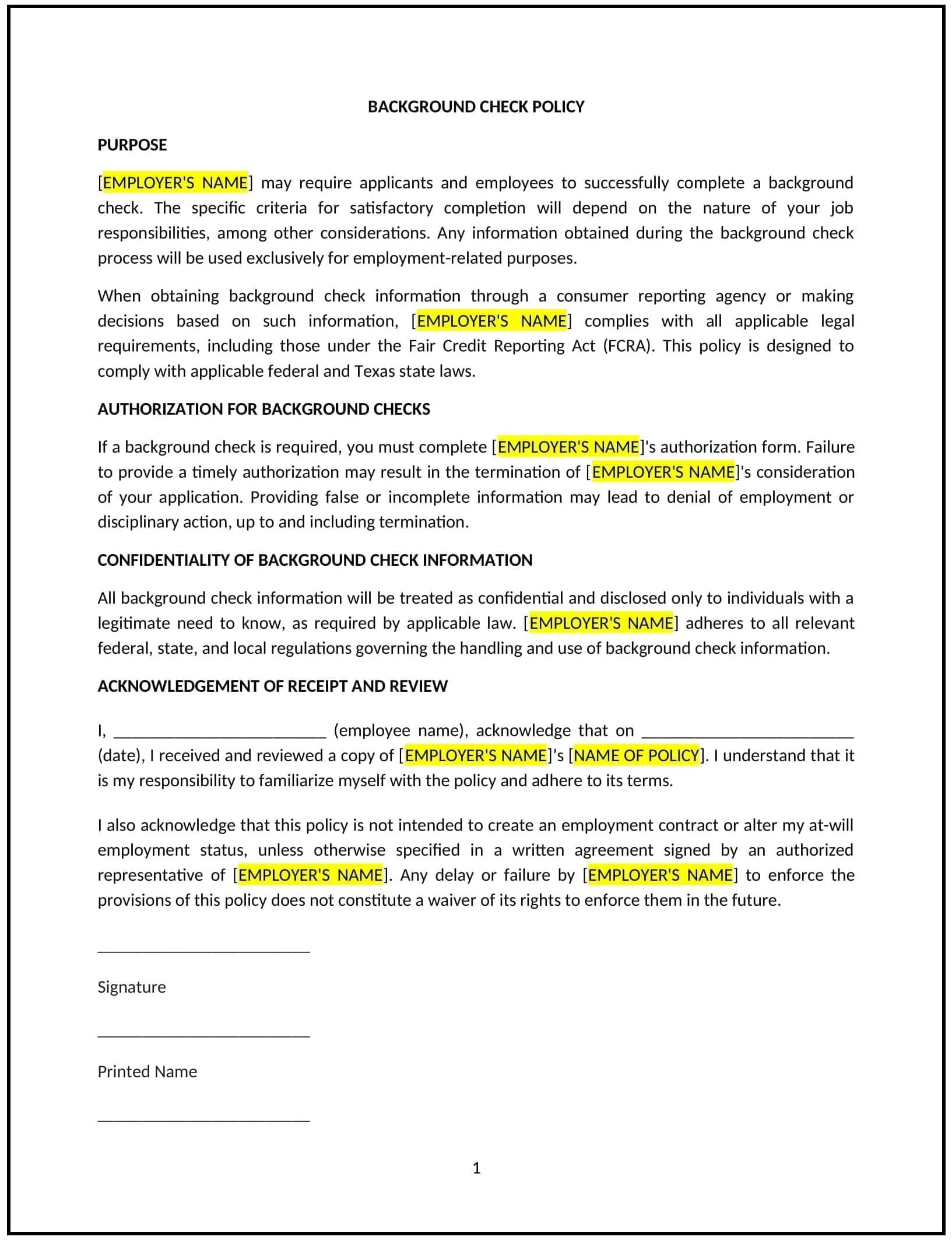Got contracts to review? While you're here for policies, let Cobrief make contract review effortless—start your free review now.

Customize this template for free
Background check policy (Texas)
This background check policy is designed to help Texas businesses establish clear guidelines for conducting background checks on prospective and current employees. Whether businesses are screening for criminal history, employment verification, or other relevant information, this template provides a structured approach to help ensure a consistent and compliant process for background checks.
By adopting this template, businesses can make informed hiring decisions, ensure workplace safety, and comply with relevant Texas and federal laws regarding background checks.
How to use this background check policy (Texas)
- Define the scope of background checks: Clearly specify the types of background checks that may be conducted, such as criminal history, employment verification, credit reports, driving records, or drug testing, depending on the role.
- Obtain consent: Ensure that employees or applicants provide written consent before background checks are conducted, in compliance with the Fair Credit Reporting Act (FCRA) and Texas state laws.
- Set eligibility criteria: Outline the criteria for conducting background checks, such as the nature of the position or certain legal or regulatory requirements for specific roles.
- Address the use of results: Detail how the results of background checks will be used in the hiring or ongoing employment process, including whether certain findings could result in disqualification.
- Outline dispute resolution: Specify the process for employees or applicants to dispute any inaccuracies or discrepancies found in their background checks.
Benefits of using this background check policy (Texas)
This policy offers several benefits for Texas businesses:
- Informed hiring decisions: Background checks help businesses make informed decisions by verifying qualifications and ensuring candidates do not have disqualifying criminal histories or other red flags.
- Ensures workplace safety: Conducting background checks can help identify potential risks to the safety of other employees, customers, or the organization.
- Reduces legal risks: A well-defined background check policy helps businesses comply with Texas and federal laws, reducing the risk of legal challenges related to employment discrimination or violations of privacy.
- Enhances business reputation: Businesses that are transparent and consistent in their hiring processes build trust with employees and the public, enhancing their reputation as a responsible employer.
- Promotes a fair process: A structured policy ensures that all candidates are evaluated equally and fairly, based on consistent criteria and without discrimination.
Tips for using this background check policy (Texas)
- Communicate clearly: Ensure all employees and applicants are informed about the background check policy and the types of checks that may be conducted.
- Obtain written consent: Always obtain written consent before conducting background checks, and ensure compliance with the FCRA and Texas state laws regarding disclosure and authorization.
- Maintain confidentiality: Treat background check results confidentially, sharing them only with the appropriate personnel involved in the hiring or employment decision-making process.
- Handle negative results carefully: If a background check reveals disqualifying information, follow a fair process to assess whether it truly impacts the applicant’s qualifications for the role.
- Review regularly: Update the policy to ensure it is compliant with any changes in Texas state laws, federal regulations, or industry best practices related to background checks.